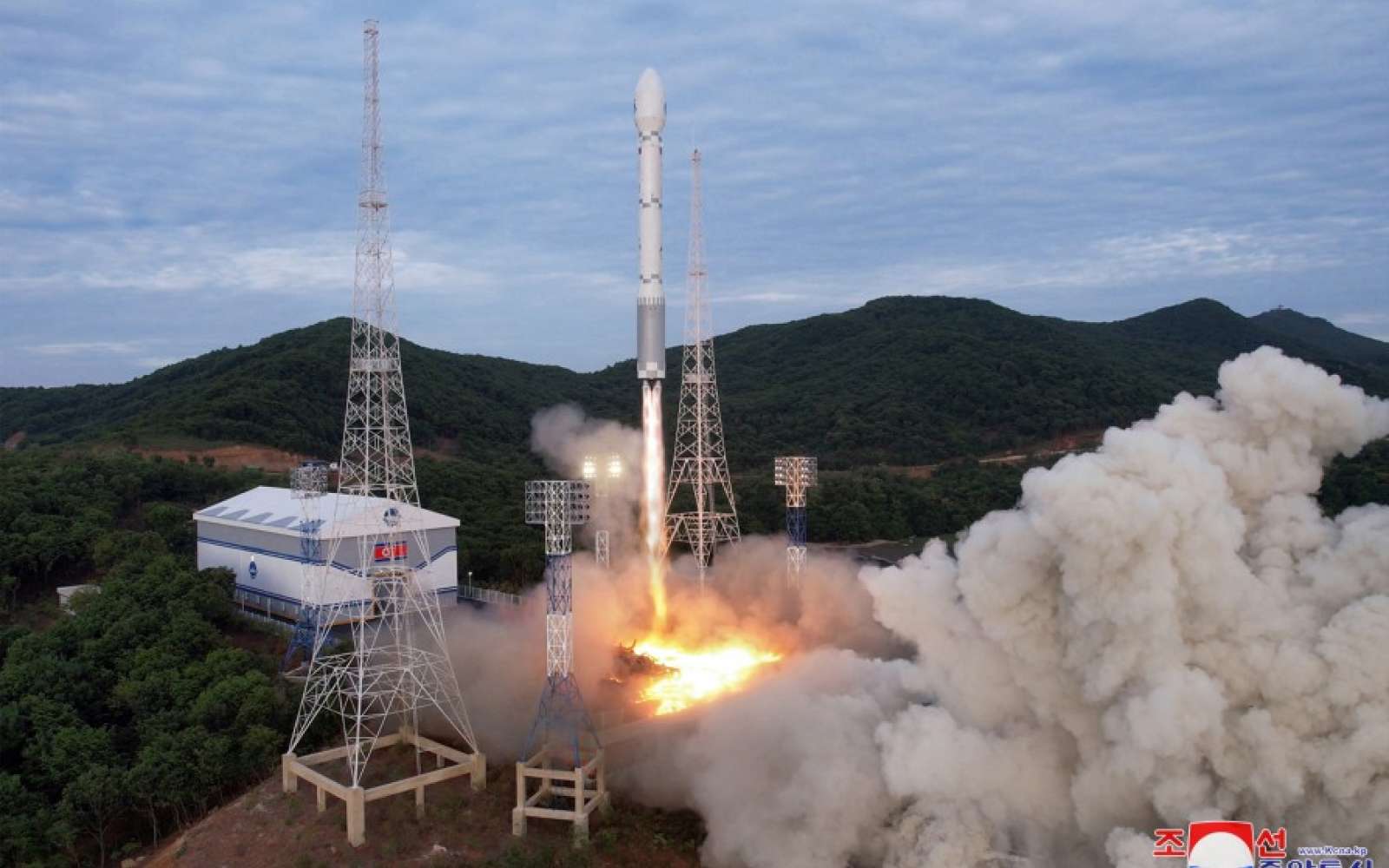
North Korea has launched a new rocket to place a spy satellite into orbit. The shooting triggered a brief panic in South Korea. The shot ended in failure following a launcher malfunction.
You may also be interested
[EN VIDÉO] The UFO in the sky of Hawaii was actually a SpaceX launch vehicle The UFO in the sky of Hawaii was in fact the fallout in the atmosphere of the last…
The shooting took place on May 31 at 6:27 a.m. local time (May 30 at 11:27 p.m. Paris time). The shooting triggered an early morning alert in Seoul and Japan. Sirens sounded in the streets of the South Korean capital, accompanied by an alert message sent to residents recommending to prepare to evacuate. Shortly after, the alert was cancelled. At no time did the rocket threaten Seoul. North Korea had also informed that it would carry out this shooting from May 31.
The takeoff also sparked condemnation from the United Nations and the United States. According to international resolutions, North Korea was ordered to respect the agreements and not to carry out ballistic fire. Barely a week earlier, South Korea had successfully launched a new orbital launch from its KSLV-2 launcher, putting 7 satellites into orbit.
A new orbital launcher
The flight lasted about 6 minutes according to the South Korean military, ending in failure resulting in the loss of the satellite. The rocket crashed into the sea 200 kilometers west of South Korea. Launcher debris was recovered. After the South Korean military announced the failure, North Korea’s state-run KCNA news agency confirmed the malfunction, giving more details.
The rocket used is called Chollima-1, and has three stages. Its payload carrying capacity is unknown. The fuel used is not known but the propulsion of the first stages is based on liquid propellants.
According to the press release from the KCNA agency, the failure occurred after concerns about the firing of the new engine of the second stage. The agency specifies that an investigation will be carried out to study the causes of the failure, before attempting another shot soon.
The satellite on board was the country’s first-ever reconnaissance satellite. North Korea had attempted five other orbital launches in the past, successfully orbiting two satellites, the last time in 2016, which appear inactive today.




GIPHY App Key not set. Please check settings